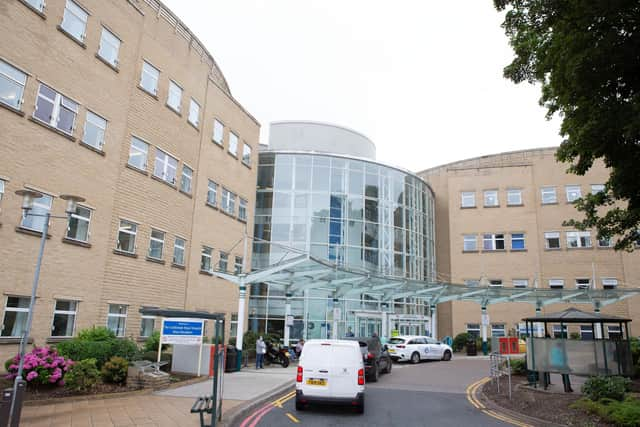Halifax people with suspected cancer diagnosis urged to come forward for cancer blood test
and live on Freeview channel 276
Patients visiting their GP surgery or hospital in Calderdale over recent months may have seen posters and leaflets for the ‘PinPoint Test’.
For the last two years, PinPoint has been undergoing an evaluation in the NHS to see how it performs in the real world, before being made available to the wider public.
Advertisement
Hide AdAdvertisement
Hide AdTo date, more than 13,000 people on the so-called ‘two week wait’ fast track for cancer have volunteered to help by having a simple blood test.


Calderdale and Huddersfield NHS Foundation Trust along with some GP practices have been involved in the evaluation.
“The response from people in West Yorkshire has been incredible. Without their generosity we simply wouldn’t be where we are today.” said Giles Tully, CEO of PinPoint Data Science.
“After more than 13,000 tests done, we are now in the final stages of validating the PinPoint test for cancers such as bowel, skin and breast.”
Advertisement
Hide AdAdvertisement
Hide AdDeehan Mair manages the PinPoint Test evaluation at Huddersfield Royal Infirmary. She is passionate about the potential of this homegrown innovation and speaks to patients daily about how it might help people in their position in future.
“PinPoint could really help us with some of the most serious and common cancers in the UK. Take gynaecological cancers, for example. Over 22,000 people a year are diagnosed with cancers of the womb, cervix or ovaries. That’s 60 a day! It’s absolutely essential that we improve early detection to save lives.”
“PinPoint could be a really powerful tool in this fight but we need the help of the public to get us there. If you receive a letter from us in Huddersfield and Calderdale, please get in touch to arrange a blood test.”
PinPoint uses AI (artificial intelligence) to analyse a range of markers in the blood.
Advertisement
Hide AdAdvertisement
Hide AdThe result of the test is a personalised risk score for cancer. The goal is for the test to help streamline the way people are referred for possible symptoms of cancer, reducing waiting times and focusing NHS resources where they are needed most.
